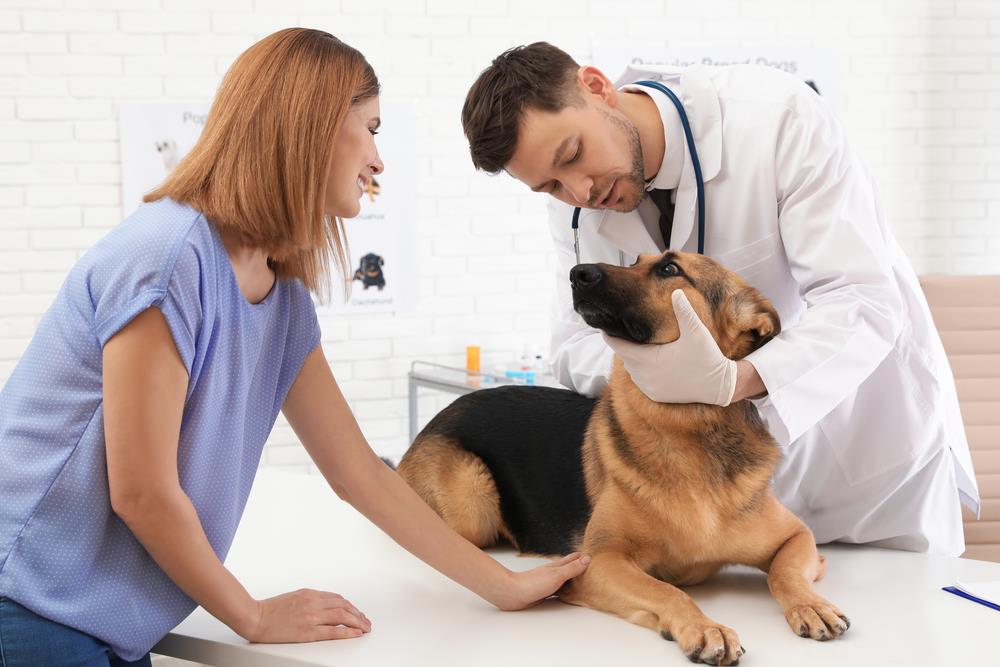Understanding Basic Pet Physiology
Pet physiology, essentially, is the study of how the body of animals functions. This includes numerous complex processes that occur within our pets, enabling them to live and thrive. A key component in pet physiology is water.
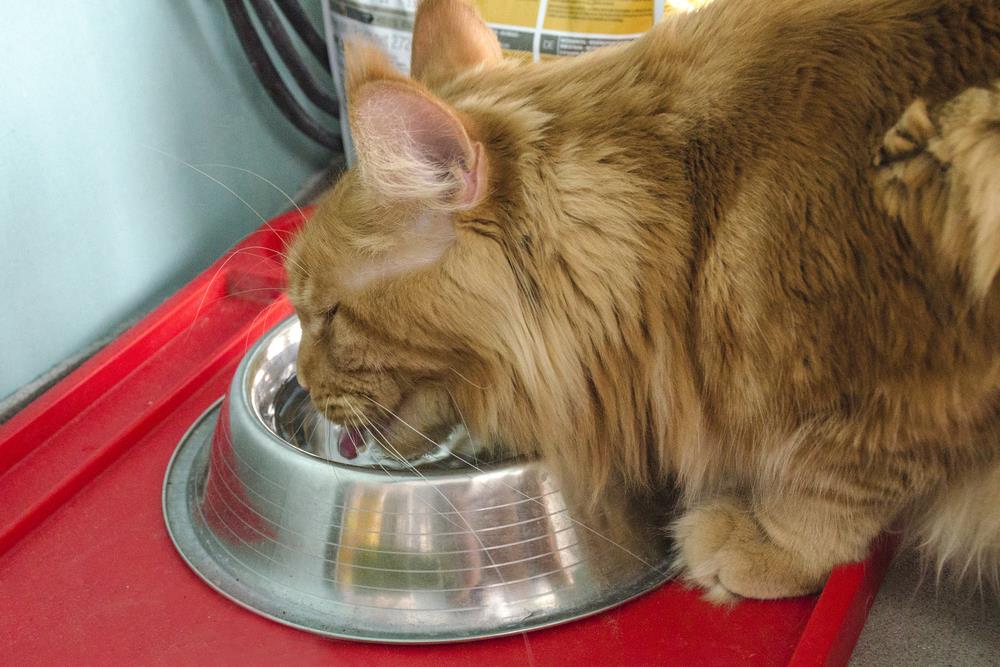
Water plays a vital role in the body of pets. It helps in the regulation of body temperature, aids digestion, lubricates joints, and is necessary for cell function. Essentially, water is the lifeblood of your pet’s body.
The Impact of Dehydration on Pets
Dehydration, or the lack of adequate water in the body, can have a significant impact on your pet’s health. Dehydration can lead to serious complications such as kidney failure, heatstroke, and even death.
Therefore, understanding pet physiology and the importance of hydration is crucial for pet owners. It’s not just about quenching their thirst; it’s a matter of health and wellbeing.
Identifying Signs of Dehydration in Pets
Recognising the signs of dehydration in our pets is crucial for their well-being. As pet owners, we need to be aware of the symptoms, which can range from mild to severe. Early detection and treatment are not just important, they are essential.

The Spectrum of Dehydration Symptoms
Mild dehydration might present as your pet being slightly less active than usual or having a dry nose. As the condition worsens, they might show loss of appetite, sunken eyes, and lethargy. Severe dehydration can lead to collapses, seizures, and in extreme cases, death.
The Importance of Early Detection and Treatment
Early detection and intervention can spare your pet from unnecessary suffering and potentially save their life. A study published in the Journal of Veterinary Emergency and Critical Care emphasises the importance of recognising and treating dehydration in pets promptly.
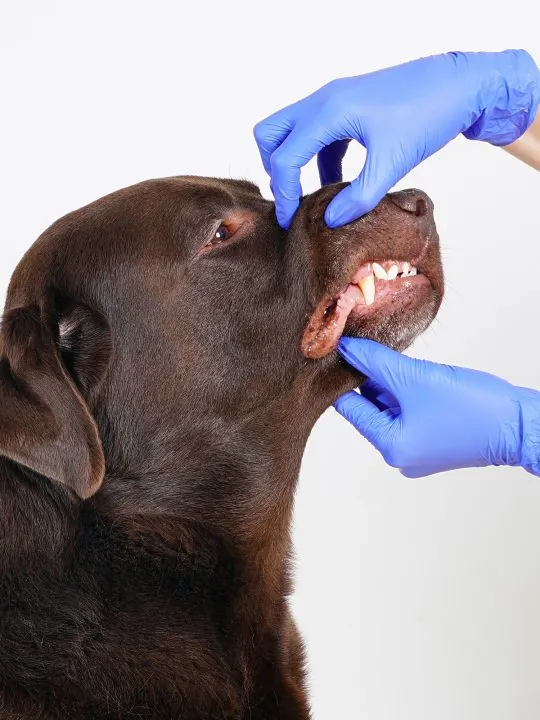
The Necessity of Hydration for Pets
Water plays a pivotal role in your pet’s health. It aids in digestion and absorption, key processes in the utilisation of nutrients from food. Without sufficient hydration, your pet’s digestive system may struggle, potentially leading to malnourishment and other health issues.
Hydration also helps in maintaining your pet’s body temperature. Just like in humans, water aids in cooling the body through perspiration and respiration, which is particularly crucial in Australia’s hot climate.
Moreover, hydration has a significant impact on the overall health and well-being of pets. It helps in facilitating various metabolic reactions, maintaining healthy skin and coat, preventing urinary tract infections, and promoting cardiovascular health. Inadequate water intake can lead to dehydration, a potentially life-threatening condition.
- Ensure your pet always has access to clean, fresh water. The amount they need will vary depending on their size, age, and physical activity level.
- Monitor your pet’s water intake. If your pet is drinking excessively or not at all, it could be a sign of a health problem and you should consult a vet.
By understanding the importance of hydration, you can ensure your pet stays healthy, happy and vibrant.
Risks Associated with Dehydration in Pets
Dehydration in pets can lead to serious health risks that have both short-term and long-term consequences. Short-term effects include lethargy, sunken eyes, loss of appetite, and panting. If left untreated, dehydration can lead to long-term issues such as kidney disease, urinary tract infections, and even organ failure.
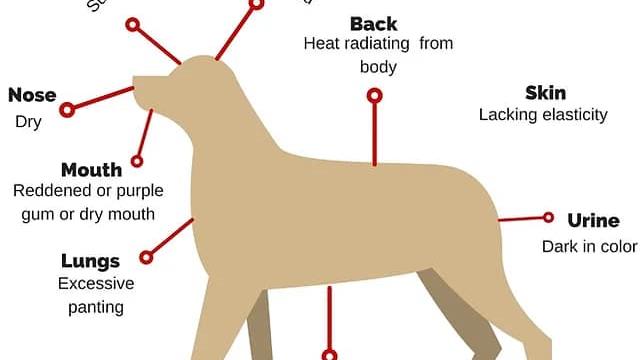
Specific Health Issues Related to Dehydration
The most common health issues related to dehydration in pets include heatstroke, kidney stones, and constipation. A study confirmed these risks, explaining that dehydration can exacerbate existing health conditions or create new ones.
Dehydration May Lead to Serious Health Problems
Dehydration should not be taken lightly. It can lead to severe health problems like organ dysfunction, liver failure, and even death. Therefore, it’s essential to keep your pets hydrated at all times.
Ensuring Sufficient Water Intake for Pets
One of the fundamental aspects of pet care is maintaining proper hydration. Different pets have varying daily water requirements. For instance, dogs require about 50-70ml of water per kilogram of their body weight, while cats need approximately 60ml. Birds and small mammals, on the other hand, have diverse needs based on species and size.
Tips and Strategies to Encourage Pets to Drink More Water
- Providing multiple water sources around your home
- Adding water to their food
- Investing in a pet drinking fountain
Remember that encouraging your pets to drink more is not about forcing them, but creating an environment that makes water intake appealing and effortless.
The Importance of Clean, Fresh Water for Pets
Just as with humans, clean water is crucial for pets. It’s necessary for digestion, nutrient absorption, temperature regulation, and overall health. Providing fresh, clean water at all times is key to preventing diseases and ensuring a healthy life for your pet.
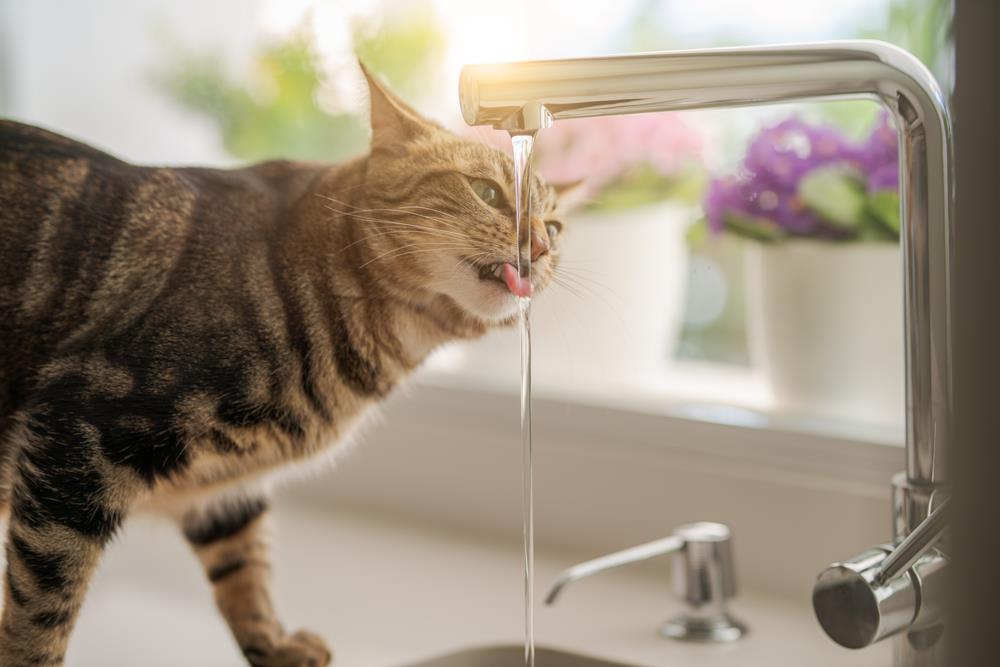
Role of Diet in Pet Hydration
It’s a common misconception that pets only receive hydration from water. In reality, their diet plays a significant role in maintaining their hydration levels. The food your pet eats can contribute to almost 70% of their total water intake.
Understanding How Pet Food Contributes to Hydration
Just like humans, animals need a balanced diet to stay healthy. This includes an optimal balance of dry and wet food. Wet food can contain up to 80% water, making it an excellent source of hydration.
The Benefits of Wet Food for Hydration
Wet food not only helps in maintaining hydration but also supports urinary health in pets. It’s a convenient way to ensure your pet gets the necessary fluids, especially if they’re not keen on drinking water regularly.
Balancing Dry and Wet Food to Maintain Hydration
While wet food is beneficial, it’s crucial not to overlook the importance of dry food. Dry food aids in dental health and provides a concentrated source of nutrients. A balanced diet with both wet and dry food will help maintain optimal hydration in your pet.
The Imperative of Hydration During Physical Activity
Just as we humans need to stay hydrated, our beloved pets also require adequate water intake, especially during physical exercise. Consistent hydration prevents a myriad of health complications such as kidney diseases and promotes optimal bodily functions . Additionally, water helps to regulate body temperature, a crucial aspect during workouts and hot weather.
Tips for Keeping Pets Hydrated in Hot Weather
- Ensure a constant supply of fresh, clean water.
- Encourage regular water intake by incorporating water-rich foods in their diet.
- Avoid strenuous exercise during peak heat hours.
Recognising Signs of Heatstroke in Pets
Heatstroke in pets is a serious condition that requires immediate attention. Watch out for symptoms such as excessive panting, drooling, increased heart rate, or collapse . It’s crucial to keep your vet’s contact details handy to address such emergencies promptly.
Recognising the Need for Veterinary Intervention
Being a pet owner, it’s crucial to understand when professional help is necessary. One such situation is when you suspect your pet may be dehydrated. Signs of dehydration in pets can include panting, decreased activity levels, and a dry nose or gums. If you notice these symptoms, it’s time to seek veterinary advice.
The Value of Regular Veterinary Check-Ups
Regular vet visits play a pivotal role in maintaining your pet’s hydration. Veterinarians can carry out a hydration assessment, which involves checking skin elasticity and examining your pet’s eyes, gums, and heart rate. Regular check-ups are therefore essential to ensure your pet maintains a healthy hydration level.
Role of Veterinarians in Pet Hydration
Veterinarians play a critical role in ensuring your pet remains hydrated, especially during hot Australian summers. They can provide tailored advice on the right amount of water intake for your pet based on breed, size, and activity levels. They can also recommend hydration-boosting foods or special hydration treatments if necessary.
